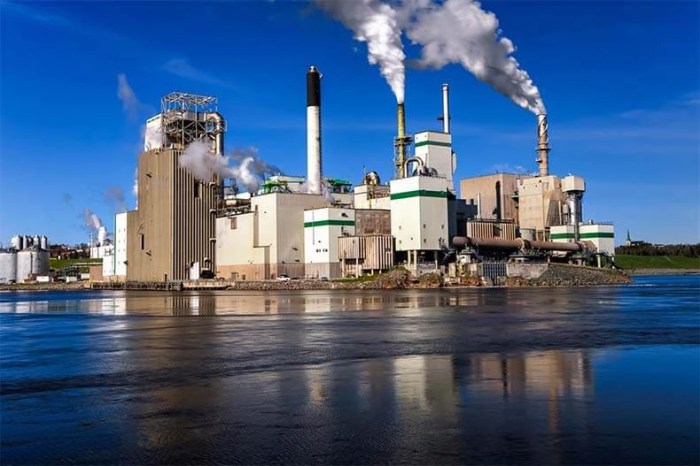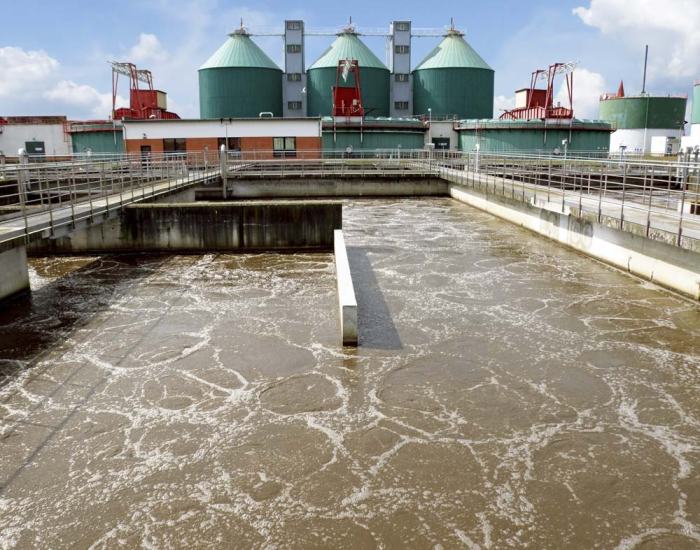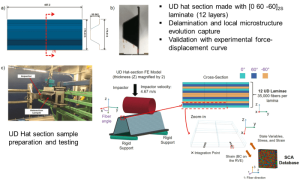
Industrial waste management solutions sets the stage for this enthralling narrative, offering readers a glimpse into a story that is rich in detail with entertaining interactive style and brimming with originality from the outset.
From exploring the importance of proper waste management to delving into innovative technologies, this topic promises to be both informative and engaging for readers seeking sustainable solutions in the industrial sector.
Industrial Waste Management Solutions

Proper industrial waste management is crucial to protect the environment, human health, and overall sustainability. By implementing effective waste management solutions, industries can minimize pollution, conserve resources, and comply with regulations.
Common Industrial Waste Types
- Hazardous Waste: Such as chemicals, solvents, and heavy metals.
- Non-Hazardous Waste: Including plastics, paper, and packaging materials.
- Organic Waste: Food scraps, agricultural residues, and wastewater.
Environmental Impact of Improper Waste Management
Improper waste management in industries can lead to contamination of soil, water, and air. This can result in health hazards for both humans and wildlife, as well as contribute to climate change and loss of biodiversity.
Innovative Technologies in Industrial Waste Management
- Advanced Recycling Techniques: Including pyrolysis, gasification, and chemical recycling to recover valuable materials from waste.
- Bioremediation: Using microorganisms to break down pollutants and clean up contaminated sites.
- Waste-to-Energy Conversion: Converting waste into heat or electricity through incineration or anaerobic digestion.
Industrial Waste Disposal Methods
Industrial waste disposal methods are crucial for ensuring the proper management and elimination of harmful waste generated by industrial processes.
- Landfill Disposal vs. Recycling:
Landfill disposal involves burying waste in designated areas, while recycling focuses on reusing materials to reduce waste. Landfill disposal can lead to environmental contamination and space limitations, whereas recycling promotes sustainability and resource conservation.
Waste-to-Energy Process
The waste-to-energy process involves converting waste materials into usable energy, such as electricity or heat, through various technologies like incineration or gasification.
- Gasification:
- Incineration:
Gasification involves converting waste materials into synthetic gas, which can be used as a fuel source for generating electricity or heat. This process helps reduce the volume of waste and produces energy in an environmentally friendly manner.
Incineration burns waste materials at high temperatures, converting them into ash, gas, and heat. While this method reduces the volume of waste, it can release harmful pollutants into the air if not properly regulated.
Challenges of Incineration
Incineration as a waste disposal method faces several challenges, including air pollution, greenhouse gas emissions, and the release of toxic substances into the environment. Proper monitoring and control measures are essential to mitigate these risks and ensure the safe disposal of industrial waste.
Industrial Waste Treatment Techniques

Industrial waste treatment techniques play a crucial role in managing the environmental impact of industrial activities. Various methods are employed to treat different types of industrial wastewater, ensuring compliance with regulations and protecting the ecosystem.
Biological Treatment in Managing Industrial Waste
Biological treatment is a common method used to manage industrial waste, particularly organic contaminants. This process involves using microorganisms to break down pollutants into non-harmful substances. The microorganisms feed on the organic matter present in the wastewater, effectively reducing the pollutant levels. One of the key advantages of biological treatment is its cost-effectiveness and environmentally friendly nature.
Chemical Treatment for Hazardous Industrial Waste
Chemical treatment is often necessary for hazardous industrial waste that cannot be effectively treated through biological means alone. This method involves the use of various chemicals to neutralize or transform toxic substances into less harmful compounds. For example, oxidizing agents like hydrogen peroxide or ozone can be used to break down hazardous chemicals present in the wastewater. Chemical treatment requires careful handling and disposal of the resulting by-products to prevent further contamination.
Advanced Oxidation Processes in Industrial Waste Treatment
Advanced oxidation processes (AOPs) are highly effective techniques used in industrial waste treatment to degrade persistent pollutants that are resistant to conventional treatment methods. AOPs involve the generation of highly reactive hydroxyl radicals, which can oxidize a wide range of organic compounds present in the wastewater. These processes are particularly useful for treating recalcitrant pollutants like dyes, pharmaceuticals, and pesticides.
AOPs offer a sustainable solution for the treatment of complex industrial wastewater streams, ensuring the removal of harmful contaminants before discharge into the environment.
INDUSTRIAL GOODS AND SERVICES
Industrial goods play a crucial role in waste management solutions, providing the necessary equipment and tools to effectively handle and treat industrial waste. Service providers also play a significant role in ensuring proper waste management practices are followed, contributing to a cleaner and safer environment. Regulatory compliance is essential in the industrial goods and services sector to maintain standards and protect the environment from harmful pollutants.
Role of Industrial Goods in Waste Management Solutions
Industrial goods such as waste containers, shredders, compactors, and recycling equipment are essential for managing industrial waste effectively. These specialized tools help in sorting, processing, and disposing of waste in an environmentally friendly manner.
Contribution of Service Providers in Industrial Waste Management
Service providers offer expertise in waste management solutions, including waste collection, transportation, treatment, and disposal. They play a crucial role in ensuring that industrial waste is managed efficiently and in compliance with regulations.
Examples of Specialized Equipment Used in Industrial Waste Management
- Industrial shredders: Used to shred and reduce the size of waste materials for easier disposal.
- Incinerators: Help in burning waste at high temperatures to reduce volume and minimize the impact on the environment.
- Water treatment systems: Used to treat contaminated water from industrial processes before discharge.
- Hazardous waste containers: Designed to safely store and transport hazardous materials to prevent leaks or spills.
Significance of Regulatory Compliance in Industrial Goods and Services Sector
Regulatory compliance ensures that industrial waste management practices follow guidelines and standards set by authorities to protect public health and the environment. Non-compliance can result in fines, penalties, and negative impacts on the ecosystem.
Last Point
As we conclude our exploration of industrial waste management solutions, it becomes evident that the key lies in embracing efficiency and sustainability. By adopting the right strategies and technologies, industries can pave the way for a cleaner, greener future.
Clarifying Questions
What are some examples of common industrial waste types?
Common industrial waste types include chemical waste, metal shavings, organic waste, and plastic materials.
How does waste-to-energy work as a sustainable disposal method?
Waste-to-energy involves converting non-recyclable waste materials into usable energy through various processes like incineration or gasification.
What is the role of biological treatment in managing industrial waste?
Biological treatment utilizes microorganisms to break down and treat organic pollutants in industrial wastewater, promoting cleaner water discharge.
Why is regulatory compliance important in the industrial goods and services sector?
Regulatory compliance ensures that industrial activities adhere to environmental standards, promoting responsible waste management practices.





